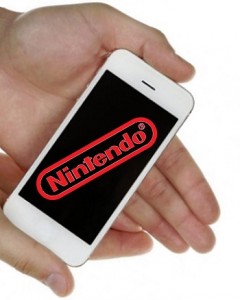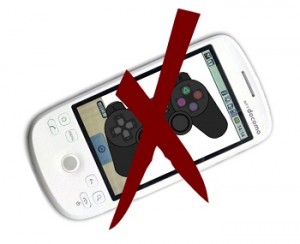The company has joined forces with a Japanese firm called DeNA Co. for developing games for smartphones and tablets.
Nintendo Inc. has been turning its back on the concept that mobile gaming would ever lead to any significant competition, but very recently, a new alliance with a Japanese smartphone based game company, DeNA Co., it looks like the company has changed its attitude.
This new partnership between Nintendo and DeNA will allow the companies to come together for mobile game development.
Nintendo has revealed that some of the best recognized trademark characters from its games, such as Pokémon and Super Mario, could soon be making their way into the mobile gaming environment. Until now, the company has been fiercely holding onto those names, keeping their appearances exclusive to its own platforms, such as the 3DS mobile devices and the Wii home consoles. These two companies have stated that they intend to form a global membership service for a range of different devices that include Nintendo gadgets, PCs, as well as mobile devices such as smartphones.
The plan is to launch this new mobile gaming service by the fall of this year.
 The two companies have both expressed that the Nintendo mobile games that they will be producing will not simply be reworked versions of the existing titles for that company’s consoles. Instead, they will be mobile apps that are developed specifically for the experience of smartphone users.
The two companies have both expressed that the Nintendo mobile games that they will be producing will not simply be reworked versions of the existing titles for that company’s consoles. Instead, they will be mobile apps that are developed specifically for the experience of smartphone users.
This partnership will bring together the game development abilities and intellectual property at Nintendo with the mobile expertise at DeNA. The announcement of this alliance also revealed that Nintendo will be acquiring about a 10 percent stake in DeNA, as it obtains about 15 million shares. DeNA will be taking on about a 1.24 percent stake of Nintendo, thorugh about 1.759 million shares of that company.
The total acquisitions in this mobile gaming deal have an estimated value of $182 million, and the exchange will take place on April 2. This will represent the start of an important redirect for Nintendo as it enters into a space that it had previously left essentially alone.
Sony recently announced that it is shutting down its PlayStation Mobile Service.
Sony initially launched PlayStation mobile (PSM) back in 2012 in response to the mobile gaming growth on mobile platforms like Android and iOS, a service that enabled PlayStation content to be played on both the PS Vita portable gaming device and PlayStation Certified Android mobile devices, such as the Xperia Play smartphone, but the electronics giant revealed last week that its cancelling its PSM service.
Sony is focusing on its businesses that are performing and cutting those that are underperforming.
While Sony did attempt to jump on board the mobile gaming trend, one of the problems it encountered is it was not successful at attracting a sufficient number of developers. Furthermore, another issue was that many mobile gamers chose devices that were not compatible with the PSM platform, and those that did support it were never particularity popular among consumers.
 However, while the company may be struggling with its PSM business, its PlayStation business has been highly successful in recent quarters. PlayStation 4 sales remain strong around the globe. Therefore, while Sony has said that it’s PlayStation business, as well as its devices operations, Sony Music, and Sony Pictures will play a vital role in its operations in the future, it also said it would be cutting those businesses that were not performing as well, which is likely why it’s game over for PSM.
However, while the company may be struggling with its PSM business, its PlayStation business has been highly successful in recent quarters. PlayStation 4 sales remain strong around the globe. Therefore, while Sony has said that it’s PlayStation business, as well as its devices operations, Sony Music, and Sony Pictures will play a vital role in its operations in the future, it also said it would be cutting those businesses that were not performing as well, which is likely why it’s game over for PSM.
PlayStation mobile gaming content distribution will cease in July.
Sony announced that after July 15, PlayStation Mobile will no longer distribute content on its supported platforms. The company also said that as of September 10, all in-app purchases and the re-downloading of purchased content will also stop, as well as the PlayStation Mobile for the Android app itself.
What this means is that those who have spent money via the PlayStation mobile gaming service will not lose access to content, as long as games are activated and the device is authenticated with their account before the closure. That being said, users of the service who do not download games onto their local device before the cancellation of the service will not be able to access this content after the closure.
 The two companies have both expressed that the Nintendo mobile games that they will be producing will not simply be reworked versions of the existing titles for that company’s consoles. Instead, they will be mobile apps that are developed specifically for the experience of smartphone users.
The two companies have both expressed that the Nintendo mobile games that they will be producing will not simply be reworked versions of the existing titles for that company’s consoles. Instead, they will be mobile apps that are developed specifically for the experience of smartphone users.
 However, while the company may be struggling with its PSM business, its PlayStation business has been highly successful in recent quarters. PlayStation 4 sales remain strong around the globe. Therefore, while Sony has said that it’s PlayStation business, as well as its devices operations, Sony Music, and Sony Pictures will play a vital role in its operations in the future, it also said it would be cutting those businesses that were not performing as well, which is likely why it’s game over for PSM.
However, while the company may be struggling with its PSM business, its PlayStation business has been highly successful in recent quarters. PlayStation 4 sales remain strong around the globe. Therefore, while Sony has said that it’s PlayStation business, as well as its devices operations, Sony Music, and Sony Pictures will play a vital role in its operations in the future, it also said it would be cutting those businesses that were not performing as well, which is likely why it’s game over for PSM.